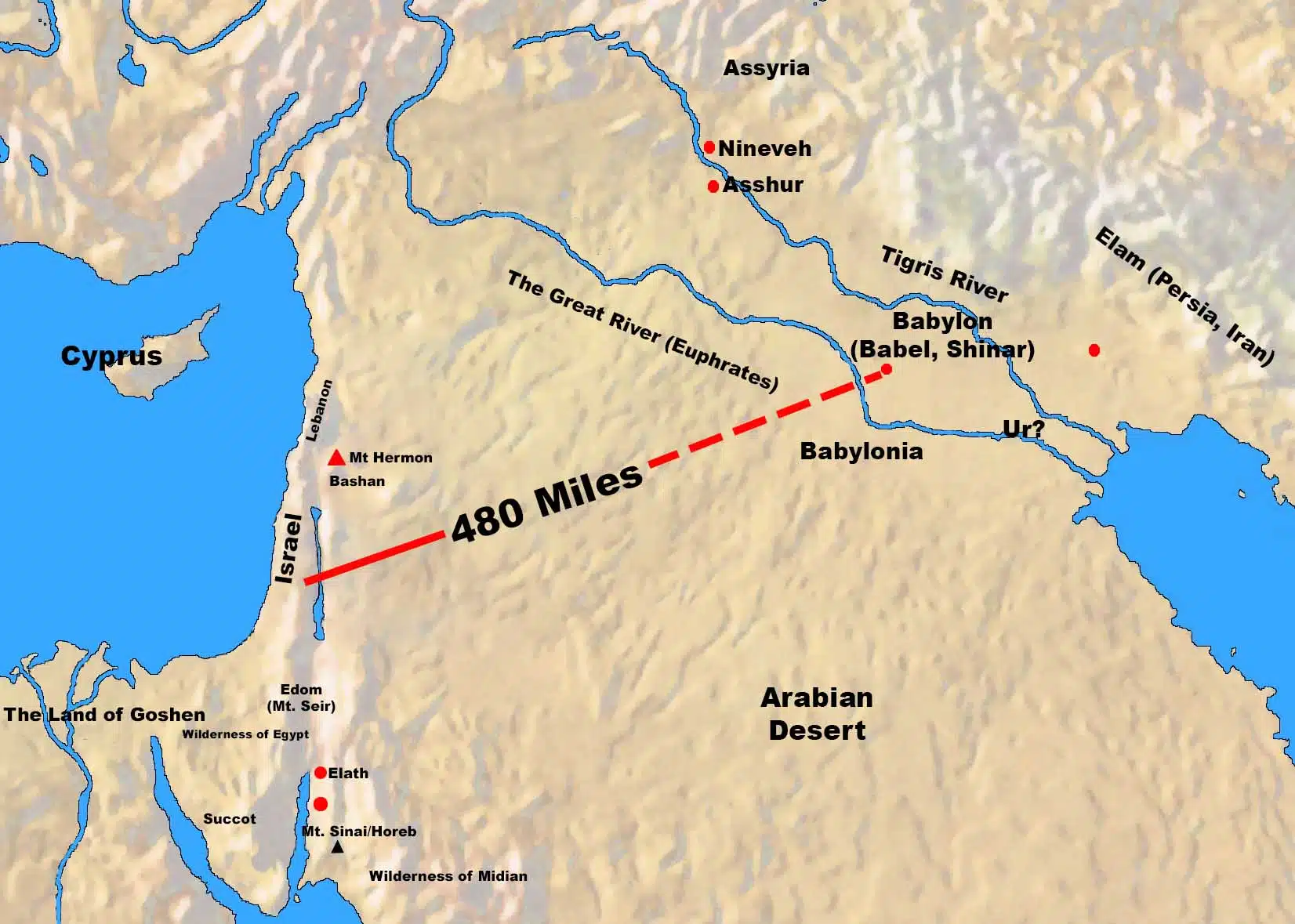Zechariah again asks the angel about the meaning of the two olive trees standing by the lampstand and the two olive branches beside the golden pipes. The angel reveals to him that they are the two men God appoints to serve Him.
After the second message in which Zechariah learned that Zerubbabel and the returning exiles of Judah would complete the temple restoration (vv. 8–10), the prophet resumed his conversation with the interpreting angel begun in verses 4 and 5. He asked a general question and said to the angel, What are these olive trees on the right of the lampstand and on its left? (vs 11).
Zechariah had asked the angel the meaning of these things in verse 4, and the angel had answered that God’s Spirit would remove obstacles preventing Zerubbabel from rebuilding the temple. But now Zechariah asks for additional information as to their meaning.
The Hebrew term for lampstand is “menôrah.” It derives from a verb that means “to flame.” In Exodus, the “menorah” gave light to the priests as they worked in the tabernacle (Exodus 25:31–40). It was to be lit in the evening and cleaned every morning (Exodus 27:21). It burned fresh olive oil.
In Zechariah’s vision, the lampstand consisted of a pedestal on which a large bowl rested. The prophet was curious. He wanted to know what the olive trees symbolized. But before the angel could answer, Zechariah noticed two oil streams that flowed from the trees. For this reason, he answered a second time and said to the angel, What are the two olive branches which are beside the two golden pipes, which empty the golden oil from themselves? (vs 12).
The interpreting angel answered Zechariah with another question: Do you not know what these are? And Zechariah replied, No, my lord (vs 13). This is the same interaction recorded in Zechariah 4:5. The Hebrew term for lord is “ʾādôn.” It conveys the idea of someone in a position of authority. The Bible often uses it to refer to a human master (Genesis 18:12; 24:12; 31:35). The prophet Zechariah used the term to refer to the angel. He humbly confessed to the divine messenger that he did not know the meaning of the images.
Then, the interpreting angel said, These are the two anointed ones who are standing by the Lord of the whole earth (vs 14). In the Hebrew text, the phrase two anointed ones is literally “two sons of oil.” In the Bible, the oil of anointing symbolizes the presence of the Spirit of God. It signals the presence and favor of God (Psalm 23:5; 89:20). Things anointed with oil are set apart as holy unto the LORD (Exodus 30:25). Thus, the LORD commanded Moses to create a special oil to “anoint Aaron and his sons, and consecrate them,” that they could “minister as priests” to Him (Exodus 30:30).
Likewise in Zechariah, the two anointed ones mean the LORD had chosen two men for a specific task. He had set them apart for His service. Zechariah’s vision likely has a double fulfillment. On the one hand, these two men were the two leaders of Judah at that time: the high priest, Joshua, and the last member of the line of David, Zerubbabel (Haggai 1:14; 2:2). The LORD used these two men as instruments to lead, equip, and encourage His covenant people so that they could complete the building project, despite the enemy’s resistance.
These two figures both presage Jesus, the Messiah. Jesus was both a high priest, according to the order of Melchizedek (Hebrews 5:6) as well as the Son of David, heir to the throne of David (Matthew 1:1).
The book of Revelation also has a picture of two olive trees, similar to the two anointed ones. The picture in the book of Revelation represents the two witnesses:
“These are the two olive trees and the two lampstands that stand before the Lord of the earth.”
(Revelation 11:4)
These witnesses—whose identity is a matter of speculation— will preach the good news during the Great Tribulation, just as Jesus spoke the good news during His ministry upon the earth.
Biblical Text
11 Then I said to him, “What are these two olive trees on the right of the lampstand and on its left?” 12 And I answered the second time and said to him, “What are the two olive branches which are beside the two golden pipes, which empty the golden oil from themselves?” 13 So he answered me, saying, “Do you not know what these are?” And I said, “No, my lord.”14 Then he said, “These are the two anointed ones who are standing by the Lord of the whole earth.”
Check out our other commentaries:
-
Philippians 4:20-23 meaning
Paul concludes his letter by praising God and sending regards from the believers in Rome to the Philippians. He wishes for Jesus’s favor to be...... -
Jonah 4:9-11 meaning
God asks Jonah if it is proper to be angry over a plant. Jonah affirms he has every reason to be angry, even to death....... -
Numbers 5:29-31 meaning
Numbers 5:29-31 provide a summary of the principles in this section (verses 11-28) concerning a husband’s suspicion and jealousy of his wife’s adultery....... -
Genesis 9:5-7 meaning
God makes a new rule that murder of another human being shall require their life. God also instructs for Noah to populate the earth abundantly...... -
The Spirit vs. The Flesh meaning
The Flesh and the Spirit are complete opposites. Our most fundamental choice as believers is choosing each day, each moment, which to obey.......



